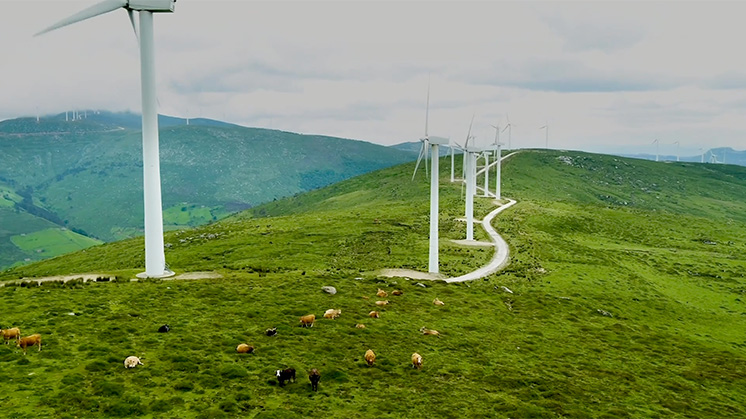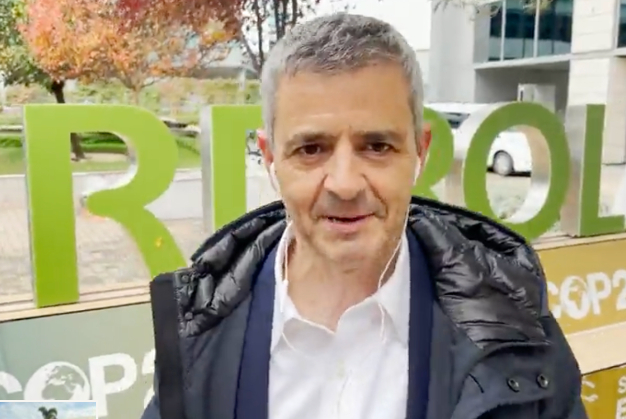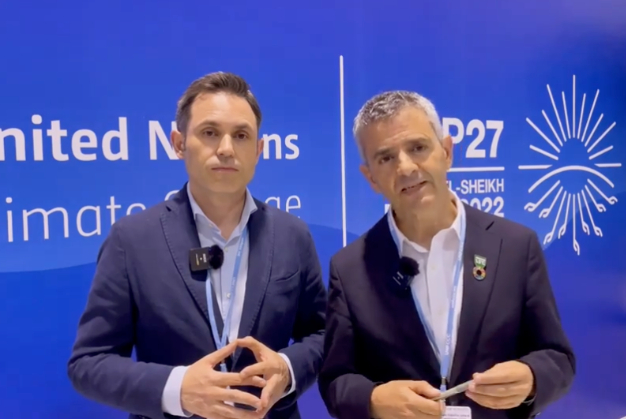COP27: 2022 Climate Summit
Iberdrola at climate conference 2022 in Egypt
Decarbonisation Climate action Foros
The United Nations Climate Change Conference, better known as COP27, was held in Sharm el Sheikh (Egypt) from 6-18 November under the theme "Together for Implementation" and with a view to renewing and extending the agreements reached in the historic Paris Agreement.

The last COP26 held in Glasgow in November 2021 certified that we are facing a critical decade in which greater action is essential, as well as the fulfilment of the commitments made. This approach led to COP27, which was held from 6 to 18 November in Sharm el Sheikh (Egypt), and which under the slogan 'Together for Implementation' sought to be a turning point in the focus of the international climate agenda.
The starting point was the so-called Paris Agreement of 12 December 2015 in the framework of COP21. World leaders adopted a historic agreement to curb climate change: they pledged to keep the increase in global average temperature to well below 2°C - compared to pre-industrial levels - and to work towards limiting this increase to 1.5°C. There was also a focus on intensifying efforts to adapt to the impacts of climate change and making finance flows consistent with both the transition to a low-carbon economy and climate-resilient development.
After COP26 in Glasgow, participating countries were encouraged to be more ambitious and to revise their climate commitments upwards, strengthening their national contributions. However, the advances in terms of financing and giving greater weight to adaptation were not sufficient and, as a result, they have became a relevant part of the climate agenda for 2022 and was the focus of much of the debate at COP27.
COP 27 THEMES
The slogan of COP 27 - "Together for implementation" - already made it clear that one of the priorities of this 2022 Climate Summit was the need to act and to move from promises and announcements to concrete results and actions on the ground. Thus, the Presidency of the summit itself had made it clear that the main themes of COP 27 were:
Implementation: Real initiatives and actions that offer concrete solutions to address the challenges of climate change.
Financing: The need for increased financial resources and improved access to funds, especially for developing countries.
Mitigation: Pursuing the objective of not exceeding a global temperature increase of 1.5°C by the end of the century.
Adaptation: Advancing the global adaptation goal, as well as a stronger presence on the global climate agenda.
Loss and damage: The countries most vulnerable to the effects of climate change are mostly developing countries that have contributed much less to the current climate emergency and are therefore calling for a loss and damage mechanism that channels specific funding.
Cooperation: is the key tool for reaching agreements to meet climate goals.
In this regard, and in terms of the main issues to be dealt with at COP 27, the most important agreement was the creation of a compensation fund for loss and damage, known as the Sharm El Sheikh Plan of Implementation, to help "developing countries that are particularly vulnerable to the adverse effects of climate change". It remains to be seen how this fund will be financed and exactly which countries it will target, something that will be decided in the coming months as the idea is for it to become operational in 2023.
As for the objective of not exceeding a global temperature increase of 1.5º by the end of the century, although this COP was intended to go a step further, it was not possible to reach a consensus. Thus, the participating countries undertook to review and strengthen their national contributions to favour a greater reduction in emissions, without a global agreement, and with very weak references to the disappearance of fossil fuels.
At these summits, agreements are reached unanimously, which means that for a pact to be reached, nearly 200 countries must agree, and the refusal of a single nation can block such an agreement.
A significant point is found in the report presented by the group of experts set up last year by the UN Secretary General to establish robust and environmentally sound zero net emissions targets for the private sector. This report contains very important recommendations to avoid "green washing" and make climate targets such as those of Iberdrola visible.

At Iberdrola, we are committed to a sustainable future for all.
Iberdrola's participation at COP 27
For yet another year, the Iberdrola group, as a world leader in the fight against climate change, played a leading role and actively participated in COP 27, demonstrating its commitment to a sustainable energy model that generates opportunities and presenting climate action as the central axis of its strategy for sustainable development and respect for the environment. Its message focused on the following main areas: :
- The war in Ukraine has highlighted the need to accelerate the energy transition, which is the answer to the current energy crisis in addition to the climate crisis.
- Business leadership, in a context where there are companies that are hindering and others that are accelerating climate action.
- More competitive industrial and energy opportunity in accelerating decarbonisation with renewables, electrification and green hydrogen in all economic sectors: electricity, transport, buildings and industries, including those difficult to decarbonise.
- Need for regulatory stability policies and not losing sight of the long term to encourage investment and take advantage of opportunities.
- Importance of the social issue: just transition, quality employment opportunities for young people, etc.
The Sharm El-Sheikh Climate Summit (COP 27) in Egypt kicked off on 6 November with Iberdrola present at the main meetings and announcements related to the fight against climate change. One example is the partnership with We Mean Business to make visible and position the launch of its Climate Action Plan.
In addition, since the start of the event, we have participated in more than 60 meetings, forums and gatherings with leaders of governments and non-governmental organisations (NGOs) to discuss what actions to take to consolidate a greener, digital and sustainable global economy. Among the high-level meetings we have had were a meeting - in collaboration with CLG and the United Nations - with Kadri Simson, European Commissioner for Energy, and representatives of the International Energy Agency and various renewable organisations. We have also met with politicians such as the Australian Minister of Energy, the leaders of the European Commission at COP27, the British MP Alok Sharma, the President of the Andalusian Regional Government and the Regional Minister of Energy of Navarre.
In the meeting with US special envoy for climate, John Kerry, held on 10 November, we were able to define the next steps to accelerate climate action to meet the commitments of the Paris Agreement. To this end, we concluded on the importance of further developing renewable energies, electrifying transport and making way for new technologies such as green hydrogen, as well as increasingly boosting climate finance.
Some of our subsidiaries, such as Neoenergia, have also been actively present at COP 27. The representative of Brazil's leading energy company participated, on 16 November, in a dialogue promoted by the Global Compact on investments in renewables for climate action where she advocated reinforcing the need to accelerate the energy transition to increase energy autonomy and reduce emissions.
In addition, she analysed the challenge of moving forward with the energy transition, underlining the relevance of creating secure energy policies, fostering innovation and new technologies such as green hydrogen, and promoting multi-sector partnerships. In short, he concluded that investors already understand that betting on companies that adopt sustainability in their strategy means less risk for their business.

Video summary of Iberdrola's participation in the COP27 Climate Summit (in spanish)

Iberdrola's participation in the COP27 Climate Summit
Iberdrola's participation in the COP27 Climate Summit.
What does COP stand for, and how did the United Nations climate change conferences come about?
COP stands for Conference of the Parties to the United Nations Framework Convention on Climate Change. These annual climate summits bring together nearly two hundred countries to negotiate joint action on climate change. The COPs were born after the United Nations Summit on Environment and Development held in Rio de Janeiro (Brazil) in 1992, which was better known as the Earth Summit. Thus, this COP 27 in Sharm el-Sheikh marks the 30th anniversary of the adoption of the United Nations Framework Convention on Climate Change (UNFCCC) and the birth of the COPs.
It was a few years later, in 1997, that COP3 in Kyoto produced the first legally binding protocol to limit greenhouse gas emissions. It was the so-called Kyoto Protocol in which the signatory countries committed themselves to reduce emissions by at least 5% (compared to 1990 levels) by 2012. 25 years later, COP 27 sought to reaffirm the commitment of the participating countries to the global climate agenda despite the difficulties and uncertainties of our time.
The next summit, COP 28, will be held in the United Arab Emirates, where the energy transition and the global diagnosis of progress against the Paris Agreement will be key issues. In addition, Spain will have special visibility as the rotating presidency of the EU.





